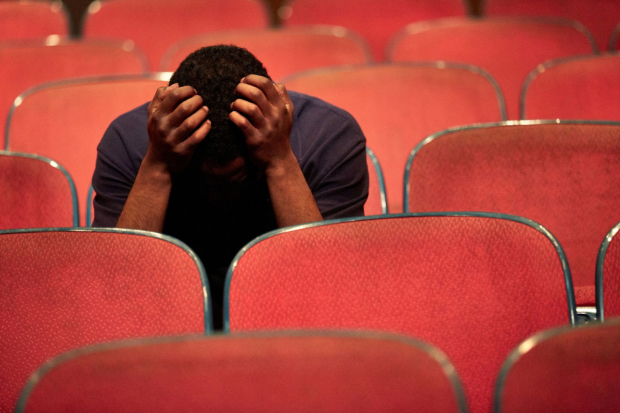Sarah Crompton: How long is too long?
Sarah Crompton asks whether our appetite for short shows means we are losing out on the gradual unfolding of a play

© Mark Douet
I went to The Painkiller the other night. "It’s 90 minutes straight through," the usher said, as I walked in. "Great!" I said. "Home in time for supper." "A lot of people say that," he replied, smiling, sagely.
It’s true. We theatre-goers like a short show. It gives us time for a little stimulation, before a nice dinner with our friends and family. We can feel that we’ve imbibed a bit of culture, without having to rush our post-show gin and tonic. Plays that are long enough to make us feel we are getting value for money, yet not so extended that we miss the last train, are becoming a bit of a trend.
Step forward Elegy at The Donmar. Or The Father, at the Tricycle. Neat 90 minute packages full of big thoughts and deep feeling. Slouch back into the wings, virtually the whole of Shakespeare, Ibsen (though Richard Eyre turned Ghosts into a brisk two hours), Chekhov, Miller and certainly all of Eugene O’Neill.
The people who are walking out at the interval are missing the point of The Flick
I like brief encounters as much as the person. But that list gives me pause for thought. In a world that moves ever faster, where attention spans are known to be shorter, are we in danger of losing our ability to settle down and concentrate? Are we beginning to value the short over the slow and sonorous? And does that mean we lose out on the gradual unfolding of plot and idea that can provoke and entertain in ways that sharp and sweet cannot?
The play that has made me wonder the most recently is The Flick, a devastatingly brilliant import from off-Broadway, now playing at the National, that is, at moments, so slow as to be glacial. About five minutes pass before anyone speaks a word; when they do, the pauses are longer than the sentences; the interval arrives after nearly two hours – the point when most of us might be heading off to the pub.
But the people who are walking out at the interval – and a few of them do each night – are missing the point of the play. It is about waiting and watching. It is a love letter to time spent observing those small details that are psychologically significant, and to culture – whether in films or on stage – that takes time to reveal itself. As written by Annie Baker and directed by Sam Gold, it is a play that asks the audience to participate, to care enough about things of value to be willing to spend time with them.
If you approach The Flick with an open heart (and possibly a small sleep beforehand), it absolutely flies by. As in the best Shakespeare, or Miller, the human lives revealed are so engrossing that you want to spend time with them. I could have watched it all over again from the start. The Painkiller, on the other hand, which was a well-played but pointless farce, made me feel as if I had been in the theatre a lifetime. Which all goes to show, length is a state of mind.












